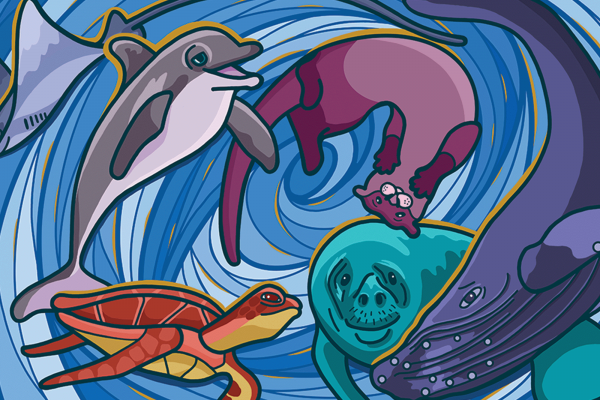DURING THE COP 28 climate change conference in Dubai, participants deliberated at length on the climate crisis and rightly set ambitious goals to address the challenges. As may seem natural, much of the conversation centered on securing a planet habitable for humans. But as Christians we must wrestle deeply with sharing God’s covenant with other creatures. Seeing creatures and the natural world as having no meaning other than how they serve human interest is a failure of human vision. The 2007 documentary Earth poignantly highlighted how an anthropocentric worldview and the human-caused environmental crisis have imperiled other creatures in a miraculously delicate system.
Perhaps out of species self-interest, much environmental work focuses on how climate shifts impact current and future human generations. But as people of faith, we can take a more wholistic view that also demonstrates commitment to the well-being of all God’s creation — animate and inanimate — because all are interdependent. In the context of the climate crisis, corrective justice requires addressing the concerns of communities disproportionately affected by climate collapse, as well as ensuring the welfare of nonhuman creatures. It is incumbent upon us to challenge the anthropocentric lens and champion biocentric approaches that affirm the sanctity of all life and creation. Our scripture readings this month present nonhuman creatures as equal partners on God’s planet and speak forcefully about their right to exist and thrive alongside our human communities. They feature animals dancing in open spaces, frolicking in the sea, and celebrating life in its fullness. Everything in nature reflects God’s glory, participates in God’s salvation, and reminds us of the divine presence.
Read the Full Article

